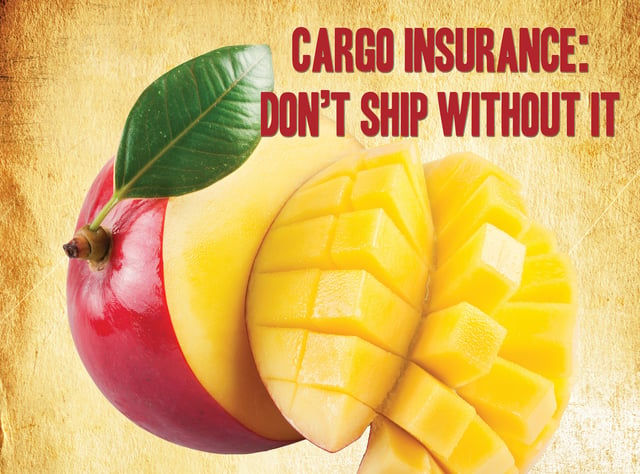
Ocean freight shipping is one of the oldest, safest and most economical options for freight transportation. While cargo losses on the ocean have continued to trend downward, accidents and what the industry calls “Acts of God” are possible. To mitigate these risks, you should always purchase cargo insurance to cover any exclusions or underpayments resulting from laws like The Carriage of Goods by Sea Act (COGSA), which limit the liability of carriers and the amounts carriers must pay in the event of cargo loss or damage.
One type of available coverage is called “All Risk” insurance and it’s the broadest form of coverage available in the marketplace for shippers. It is a specialized insurance coverage designed to protect goods against all risks of physical loss or damage from any external cause during international and domestic transit. Coverage applies to all modes of transit throughout the supply chain on a global basis, and in the case of Crowley’s “All Risk” Cargo Insurance product, carries a zero deductible for approved, general merchandise.
Take this very real example from a Crowley customer as proof of the importance of having cargo insurance:
Customer Martex Farms had two reefer units loaded with mangoes aboard the barge Fortaleza for port-to-door transit from San Juan to Philadelphia when the voyage encountered severe weather from hurricane Joaquin. The powerpack was damaged, triggering a safety shutoff of the power supply to the reefer units. This loss of power coupled with the additional days at sea spent avoiding the storm, caused the mangoes’ condition to deteriorate.
Under COGSA, Crowley had no liability for the mangoes’ condition. The shipper had however included “All Risk” cargo insurance in their contract allowing them to make a claim for their loss in full.
Upon receipt of their damaged mangoes, Martex Farms gave notice to Crowley, using the online reporting tool, and a survey of the damaged cargo was arranged by Crowley within 48 hours. The customer subsequently submitted their formal claim comprising of:
- Cost of mangoes,
- Freight charges,
- Disposal costs for the unusable produce,
- Minus a credit for the monies received from the secondary market for the salvageable fruit.
Following research into the limit of insurance purchased and the documentation provided, the claims were settled/paid in full. Since the cause of the loss was an Act of God/Nature, Crowley as the ocean carrier had no liability, but by electing the protection of the convenient Crowley All Risk cargo insurance, their $50,000 in losses were covered in full.
Remember, there is a difference in what a customer or their carrier is legally required to carry, and what makes good business sense. If done right, nothing in the supply chain protects a shipper’s financial interest as well as all risk door-to-door cargo insurance. As with any insurance policy, there are some exclusions, such as for loss, damage or expense caused by delay, inherent vice, insufficient packaging, and pre-existing conditions.
Whether a shipper ultimately decides to purchase All Risk insurance or another type of policy that meets their needs, the importance of protecting cargo along the supply chain can’t be underscored enough. To review a list of Frequently Asked Questions about this type of insurance, click here.
If you don’t currently have an experienced cargo insurance agent to guide you through the process, we invite you to contact Whitehall Insurance, before your next cargo move.
If you have additional questions, please contact your sales representative or the Customer Care Department at 1-800-CROWLEY.



